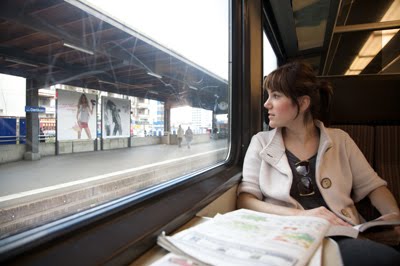Today was our second class at the Tiziano Project. It's been really rewarding to see all of our hard work toward organizing this workshop materialize into students who are excited about learning from us.
I've been lead teaching the last few classes, which have concentrated on the basics of journalism - how to interview, write an article -- and social media techniques to easily display that information online.
I have to admit, while I'm passionate about sharing my knowledge, I knew that today's lesson wasn't going to be fun and I felt a little bad about subjecting my students to three hours of hardcore basics. Today's class was a lesson I reviewed over and over again through j-school and each time I did, all I could think about is how I wanted to break all the rules my professors were giving me or how I wanted to get on to the fun stuff.
Now I feel bad for sighing and yawning my way through those classes. Standing up in front of the students, I hated knowing I was about to bore them to tears.
Luckily, the students all took it in good stride, and asked a lot of great questions.
And in a really neat way, teaching reporting to people who speak English as a second language made me focus on how to drill down on those raw components of journalism that will translate into any language: How to build trust with your sources and your readers, and how to tell a story clearly, truthfully and powerfully.
When I was a kid, I used to live in an area of Los Angeles where wildfires burned through annually. Every year my family would evacuate and watch from a hotel TV as reporters stood in front of burned homes just a couple of miles or blocks from my house.
Once, a reporter announced on camera that my whole neighborhood was on fire. Another time, a reporter announced that my elementary school had burned down. Neither were true. But there was an excruciating period of waiting, in that hotel room, where we didn't know for sure what we were coming home to and we didn't know whether we could believe what we had just watched on the news.
It was these seeds of uncertainty, of anger, of a childlike certainty that the people I was watching could do better, that made me want to be a journalist. I didn't want to watch or read something and wonder if it was true, to sit and wait until I knew for sure. I wanted to see things for myself, to know what true. By being a journalist, I could be the first person to know things, and I knew I could trust myself to report stories to other people with honesty and accuracy.
So while today's lesson may have been dull as all hell, I'm glad that I now have the chance to pass on my childhood resolution to others who really want to learn.


No comments:
Post a Comment